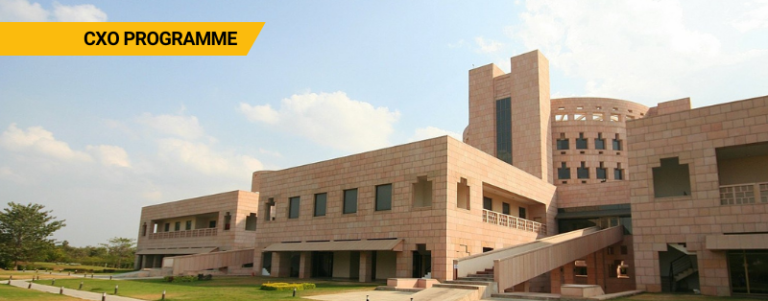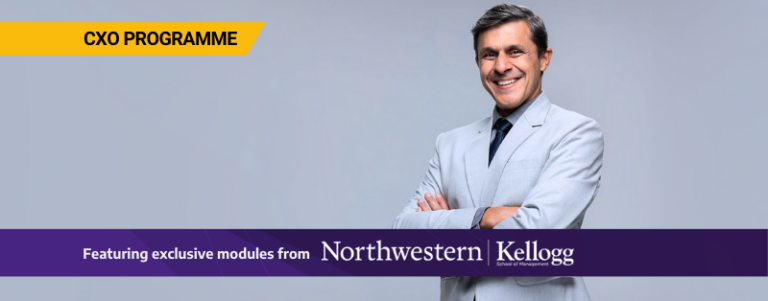How and Why to Develop a Growth Mindset in the Workplace

In today’s corporate environment, the bottom line tends to be prized above all else. But increasingly, researchers and leaders understand that a focus on short-term outcomes at the expense of a company’s long-term growth can be counterproductive.
One symptom of this problem? It teaches employees to operate within a fixed mindset, as opposed to the growth mindset that’s more conducive to improvement and progress.
What Is a Growth Mindset?
The term “growth mindset” was originally coined by Carol Dweck, a psychologist, professor, and researcher at Stanford University, in her 2006 book Mindset: The New Psychology of Success. A person demonstrates a growth mindset, Dweck explains, when they believe they’re not limited by inherent traits or abilities. Instead, they have the capacity to learn, grow, and improve.
When we talk about the Indian corporate scenario, skills like a growth mindset, autonomy, critical thinking, and creativity have become the primary factors of aggressive organizational growth and success.
This mindset stands in contrast to a “fixed mindset,” in which a person believes they possess a certain set of characteristics that’s unlikely to change. In the workplace, these two mindsets can appear both on an individual and at an organisational level. Since the original publication of her book, Dweck has conducted research showing that most companies demonstrate an overall trend toward either fixed mindsets or growth mindsets. And those trends have real effects on organisations.
Benefits of a Growth Mindset in the Workplace
Distinguishing between a growth mindset vs. fixed mindset may seem subjective from the outset. But research by Dweck, her collaborators, and others in their field consistently shows that they significantly change the way individuals and organisations operate. Here are some of the key benefits of an organisational growth mindset in the workplace.
Increased Trust
Since employees with fixed mindsets tend to believe their abilities and those of their peers are essentially set, they are more likely to view their colleagues as competitors in a race for success rather than collaborators. Corporate cultures rooted in fixed mindsets, therefore, demonstrate less trust and reduced commitment to the organisation.
A widely shared growth mindset in the workplace, on the other hand, shows clear benefits for organisations. Surveys show that in these companies, employees are 47% more likely to say their colleagues are trustworthy.
Better Morale
In a growth-oriented organisation, employees understand that leaders will judge their performance based on their effort and creativity rather than on inherent traits or their willingness to support short-term thinking. A growth mindset also empowers employees to ask questions and offer up their own ideas, helping the company to avoid falling into the trap of groupthink.
Believing their opinions matter and that they are trusted to grow with the company is a major morale boost. According to the Harvard Business Review, employees at companies with growth mindsets are 34% more likely to feel a strong sense of commitment to the organisation.
Increased Innovation and Risk-Taking
A growth mindset is essential for nurturing innovation and willingness to take risks at the company level. When individuals and organisations believe their capacities are fixed, they’re more likely to focus on specific, short-term goals (such as quarterly returns) rather than longer-term possibilities. As a result, leaders may avoid taking risks that could impact their short-term milestones.
And this difference isn’t lost on employees, according to HBR. Those who work at companies with a growth mindset are 65% more likely to say their company promotes risk-taking. They’re also 49% more likely to say their organisation fosters innovation. Ultimately, employees need assurance that their company culture supports new ideas, even if they might not work out, to feel comfortable putting them forward. It’s no wonder innovation leaders like General Electric and Microsoft are known for their efforts to foster a growth mindset.
How to Develop a Growth Mindset at Work
Since mindsets are often seen as highly personal, it’s easy to assume that companies can’t change how their employees interpret the world around them. However, taking intentional steps to prioritise a growth mindset in the workplace can have major impacts on company culture. Research shows that individuals mindsets’ are highly responsive to triggers like their environments and the messages they receive.
Here are five steps to develop a growth mindset in your organisation.
-
Tie Performance Evaluation to Learning, Not Output
Traditionally, employee performance evaluations have leaned heavily on measures of output like units sold or projects completed on time. At many companies, employees are benchmarked against one another (implicitly, like when employees share numerical goals, or explicitly, as in stacked ranking systems).
To foster an organisational growth mindset, leaders can instead evaluate how employees are growing and developing. They can consider setting goals that have more to do with improving their skills than their output.
-
Classify Both Successes and Failures as Learning Opportunities
While nobody likes to fail, stigmatising failure or shaming employees when projects don’t succeed will only decrease their confidence and make them wary of sharing future ideas. Instead, leaders can encourage a growth mindset in the workplace by celebrating failures as part of the learning process and treating them as a source of valuable data on what worked (and what didn’t).
-
Encourage Employees to Speak Up
Companies with a growth mindset recognise that good ideas may come from unexpected sources. Instead of turning to only a select few employees to raise red flags or propose new plans, leaders with growth mindsets are open to hearing other perspectives, even when they challenge their own, and understand that questions are essential to growth.
-
Invest in Employees’ Upskilling and Reskilling Efforts
Today, most organisations are facing or anticipating skills gaps as technology evolves. Instead of assuming employees are only suited to the roles they’ve always done, savvy leaders and companies with growth mindsets understand that employees likely already have the capacity and intelligence needed to face the challenges at their disposal.
These employers invest in reskilling and upskilling employees through in-house training or external programs like those Emeritus India offers. To employees, participation in these programs is a strong indication that their company leadership believes in their potential, further promoting a growth mindset on an individual level.
-
Support Coaching and Cross-Domain Learning
Organisations with growth mindsets understand that an employee’s full potential may not be immediately apparent. They also know that investing time and energy into employees with the enthusiasm and willingness to learn can reap major benefits.
Leaders should consider providing one-on-one coaching, as well as opportunities for cross-domain learning (like collaborating with other teams or even a short-term transfer) to employees who demonstrate an interest in growth.
Building a growth mindset in an organisation is a long-term project—but it’s one that can lead to significant positive change. But, as Dweck explains, simply talking about a growth mindset at work isn’t enough to make it a reality. Instead, organisations must take specific steps to encourage employees to grow their skills, take risks, and challenge themselves, even when it doesn’t feel comfortable.
Emeritus India offers a range of world-renowned leadership courses to help you take your career and organisation to the next level!














